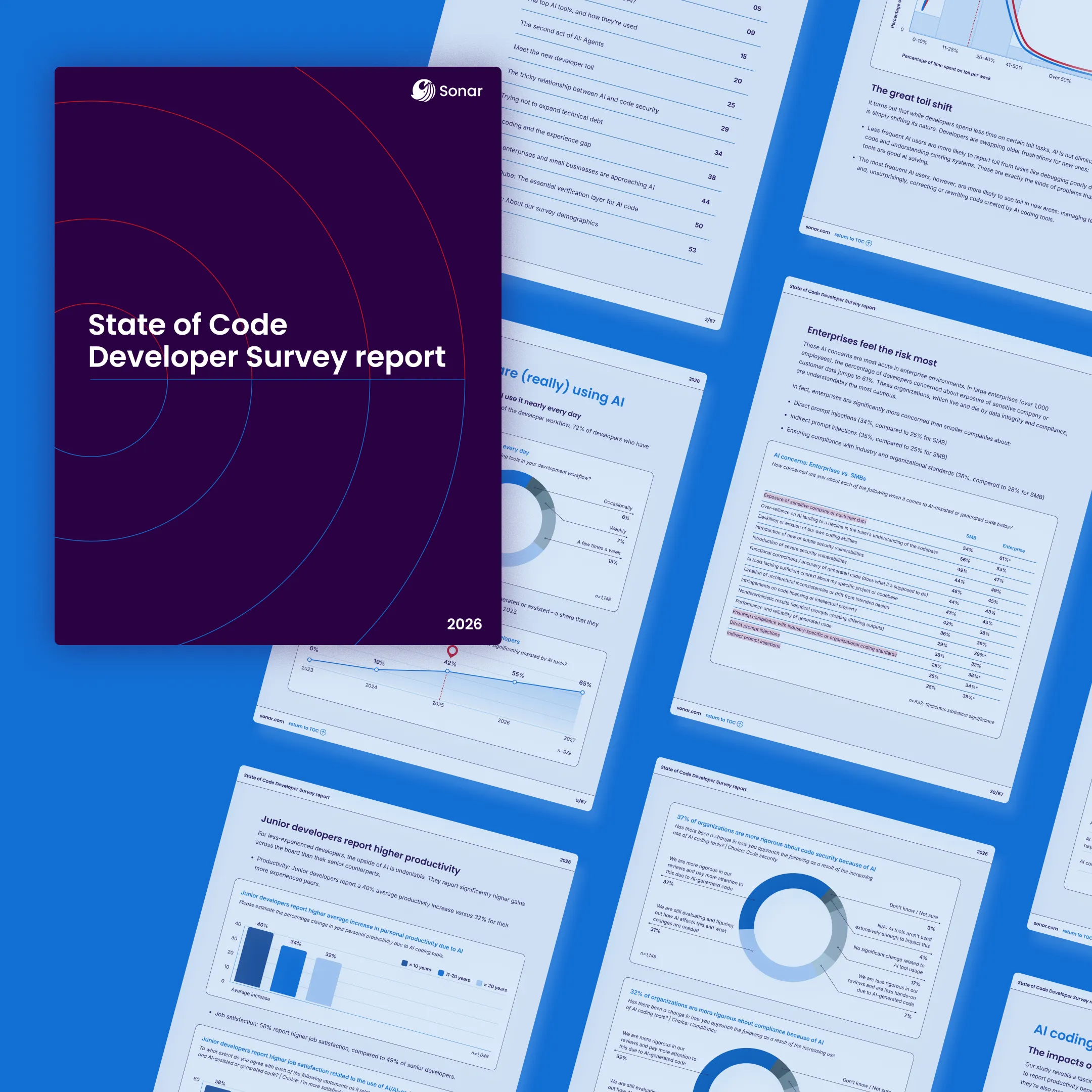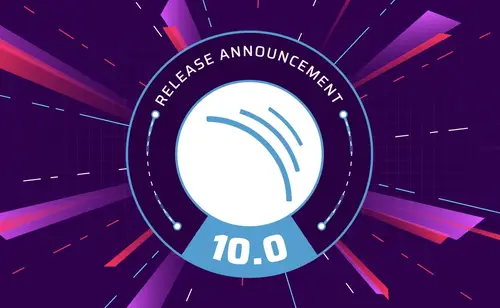Sonar's latest blog posts
State of Code Developer Survey report: The current reality of AI coding
Sonar analyzes over 750 billion lines of code every day. This gives us a unique, high-level view of the state of code quality and security across the globe.


Interview with Sonar Python Developers Part 2
Latest Python developments. Interview with Python developers from Sonar.
Read Blog >

Odoo: Get your Content Type right, or else!
What do we need content types for anyway? Let's look into how an incorrect content type led to a real-world vulnerability in Odoo, CVE-2023-1434.
Read article >
Get new blog posts delivered directly to your inbox!
Stay up-to-date with the latest Sonar content. Subscribe now to receive the latest blog articles.

Interview with Sonar Python Developers Part 1
Why should I learn Python language? When should I use Python? Is tooling around Python development mature?
Read Blog >

Sonar ❤️ Compiler Explorer: Write clean C++ code inside your browser
Sonar ❤️ Compiler Explorer: Write clean C++ code inside your browser
Read Blog >

Paying maintainers: the HOWTO
It is no surprise that lots of well-intentioned people have failed to figure out how to effectively pay maintainers.
Read article >

Pretalx Vulnerabilities: How to get accepted at every conference
We recently discovered two vulnerabilities in pretalx and found a generic technique to gain code execution from a file write.
Read article >

Another 9 reasons to upgrade to SonarQube Server 9.9 LTS
SonarQube Server 9.9 LTS is here! We're back with another 9 reasons you should prioritise upgrading as soon as possible.
Read article >

How bad code destroys developer velocity
When bad code gets overlooked, it can create lasting problems and ultimately impact developer productivity and velocity.
Read Blog >

Announcing SonarQube Server 10.0
Learn what features - like faster first analysis and better user management with SCIM - are available to you and your teams in SonarQube Server 10.0!
Read article >

It’s a (SNMP) Trap: Gaining Code Execution on LibreNMS
Our researchers discovered a vulnerability in LibreNMS, which could be exploited by attackers to gain RCE by sending a single SNMP trap.
Read article >

Sonar is the Code Quality solution for your DevOps workflow
Code Quality from Sonar aims to streamline your DevOps workflow so that your organization can yield the best possible results from your software.
Read Blog >